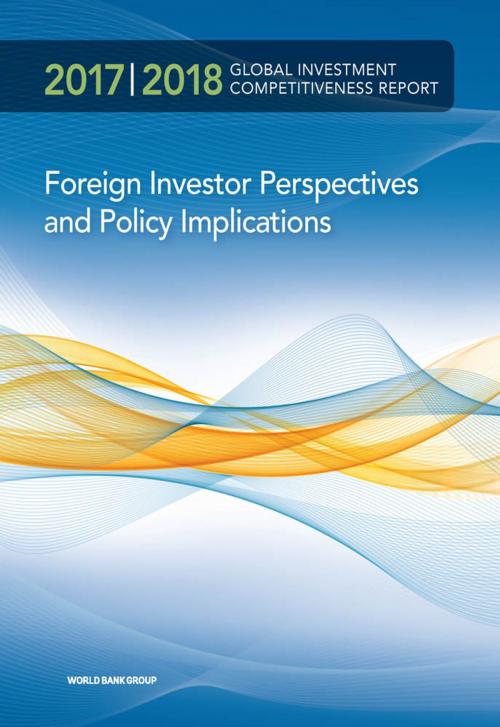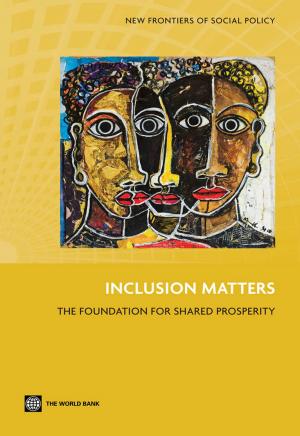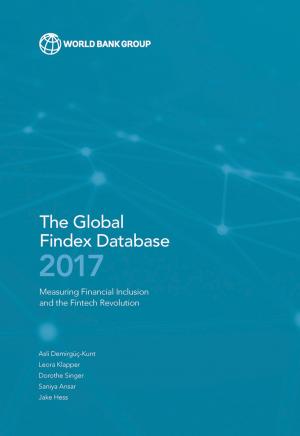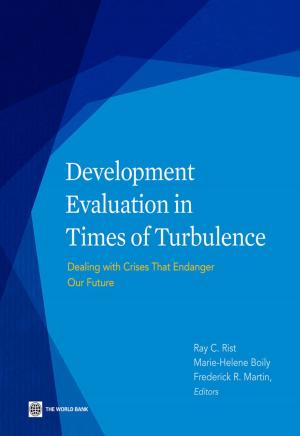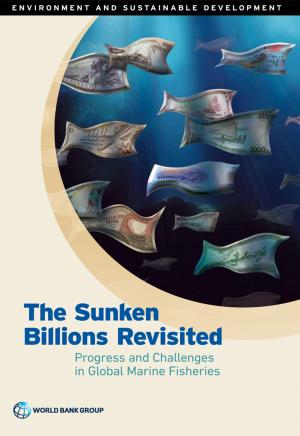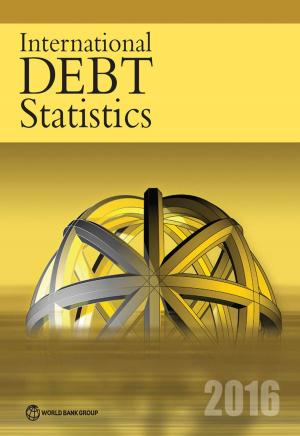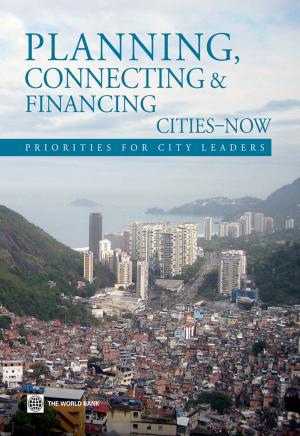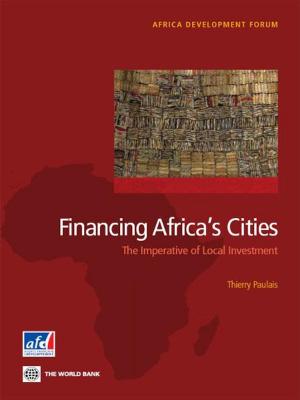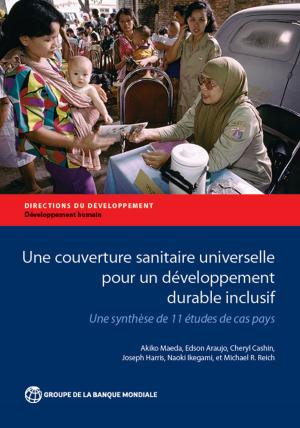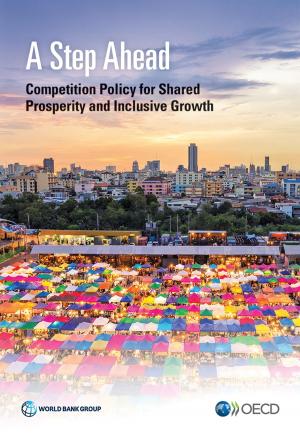Global Investment Competitiveness Report 2017/2018
Foreign Investor Perspectives and Policy Implications
Business & Finance, Business Reference, Government & Business, Economics, Economic Conditions, Economic Development| Author: | World Bank Group | ISBN: | 9781464811852 |
| Publisher: | World Bank Publications | Publication: | October 25, 2017 |
| Imprint: | World Bank Publications | Language: | English |
| Author: | World Bank Group |
| ISBN: | 9781464811852 |
| Publisher: | World Bank Publications |
| Publication: | October 25, 2017 |
| Imprint: | World Bank Publications |
| Language: | English |
The Global Investment Competitiveness report presents new insights and evidence on drivers of foreign direct investment (FDI) in developing countries, and FDI’s role in development. The report’s survey of 750 executives of multinational corporations finds that a business-friendly legal and regulatory environment is a key driver of investment decisions in developing countries, along with political stability, security, and macroeconomic conditions. The report’s topic-specific chapters explore the potential of FDI to create new growth opportunities for local firms, assess the power of tax holidays and other fiscal incentives to attract FDI, analyze characteristics of FDI originating in developing countries, and examine the experience of foreign investors in countries affected by conflict and fragility. Three key features of this Global Investment Competitiveness report distinguish it from other publications on FDI. First, its insights are based on a combination of first-hand perspectives of investors, extensive analysis of available data and evidence, and international good practices in investment policy design and implementation. Secondly, rather than exploring broad FDI trends, the report provides detailed and unique analysis of FDI depending on its motivation, sector, geographic origin and destination, and phase of investment. Thirdly, the report offers practical and actionable recommendations to policymakers in developing countries wishing to reform their business climates for increased investment competitiveness. As such, the report is meant to complement other knowledge products of the World Bank Group focused even more explicitly on country-level data, detailed reform diagnostics, and presentation of best practices. We are confident this report will bring value and fresh perspectives to a variety of audiences. To governments and policymakers, including investment promotion professionals, the report offers direct insights into the role of government policies and actions in investors’ decision-making. To foreign investors and site location consultants, the report provides information on FDI trends and drivers across sectors and geographies. For academic audiences, the new datasets on investment incentives and FDI motivations enables opportunities for additional research and analysis. Lastly, for development assistance providers and other stakeholders, the report highlights key approaches for maximizing FDI’s benefits for development.
The Global Investment Competitiveness report presents new insights and evidence on drivers of foreign direct investment (FDI) in developing countries, and FDI’s role in development. The report’s survey of 750 executives of multinational corporations finds that a business-friendly legal and regulatory environment is a key driver of investment decisions in developing countries, along with political stability, security, and macroeconomic conditions. The report’s topic-specific chapters explore the potential of FDI to create new growth opportunities for local firms, assess the power of tax holidays and other fiscal incentives to attract FDI, analyze characteristics of FDI originating in developing countries, and examine the experience of foreign investors in countries affected by conflict and fragility. Three key features of this Global Investment Competitiveness report distinguish it from other publications on FDI. First, its insights are based on a combination of first-hand perspectives of investors, extensive analysis of available data and evidence, and international good practices in investment policy design and implementation. Secondly, rather than exploring broad FDI trends, the report provides detailed and unique analysis of FDI depending on its motivation, sector, geographic origin and destination, and phase of investment. Thirdly, the report offers practical and actionable recommendations to policymakers in developing countries wishing to reform their business climates for increased investment competitiveness. As such, the report is meant to complement other knowledge products of the World Bank Group focused even more explicitly on country-level data, detailed reform diagnostics, and presentation of best practices. We are confident this report will bring value and fresh perspectives to a variety of audiences. To governments and policymakers, including investment promotion professionals, the report offers direct insights into the role of government policies and actions in investors’ decision-making. To foreign investors and site location consultants, the report provides information on FDI trends and drivers across sectors and geographies. For academic audiences, the new datasets on investment incentives and FDI motivations enables opportunities for additional research and analysis. Lastly, for development assistance providers and other stakeholders, the report highlights key approaches for maximizing FDI’s benefits for development.
